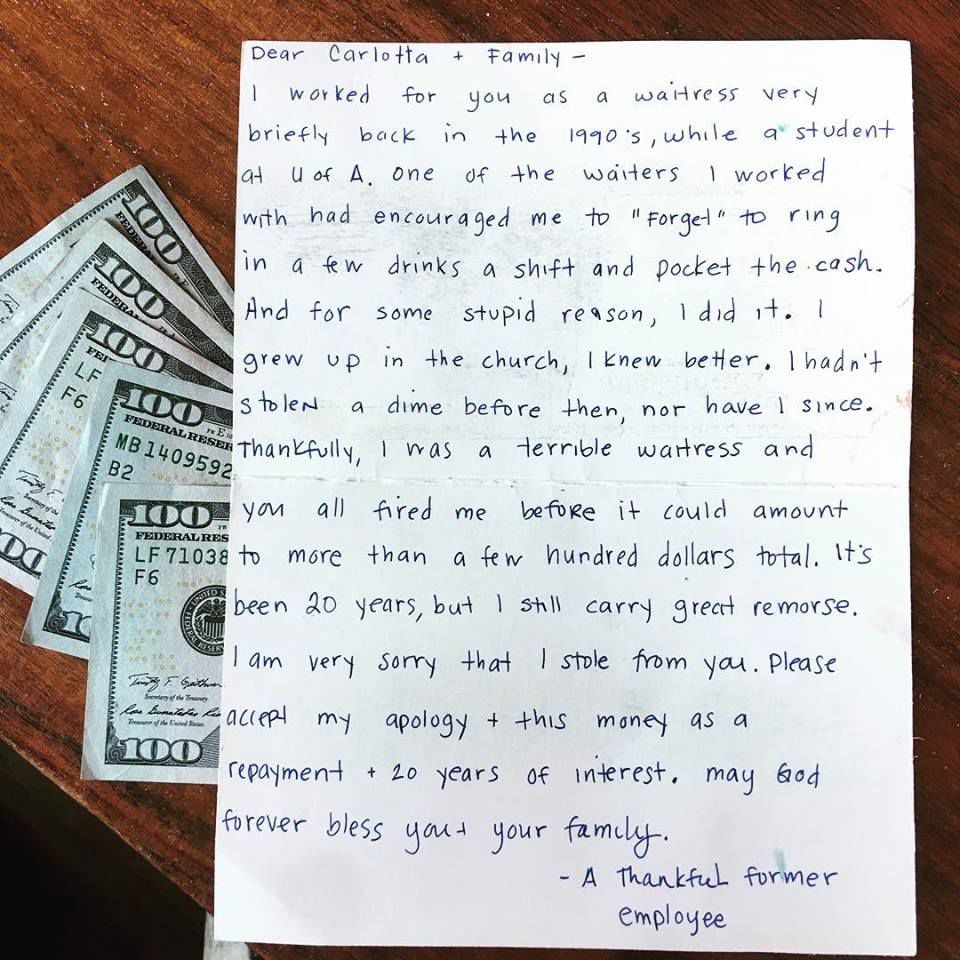An anonymous apology letter and $1,000 in cash from a person claiming to be a former waitress who stole money from El Charro Cafe more than two decades ago has lifted the spirits of the Tucson restaurant owner and spread quickly across the internet.
Last week, Ray Flores, El Charro’s president, shared the story on his Facebook page.
"I worked for you as a waitress very briefly back in the 1990's, while a student at U of A. One of the waiters I worked with had encouraged me to 'forget' to ring in a few drinks a shift and pocket the cash. And for some stupid reason, I did it,” the letter reads.
“I grew up in the church, I knew better. I hadn't stolen a dime before then, nor have I since. Thankfully, I was a terrible waitress and you all fired me before it could amount to more than a few hundred dollars total. It's been 20 years, but I still carry great remorse. I am very sorry that I stole from you. Please accept my apology plus this money as a repayment plus 20 years of interest. May God forever bless you and your family."
Flores says the letter came just two days after his mother, El Charro owner and chef Carlotta Flores, was shoved and had her purse stolen by a man while grocery shopping.
"She had been very down over that experience and then this kind act occurred," Flores wrote in his Facebook posting.
The story about trying to right a wrong at the iconic Tucson restaurant has since gone viral on social media and has been reported on several news outlets, such as CNN and the Daily Mail.
"Most of us don't think about feeling guilty over such a long time," said Daniel Sullivan, an assistant professor in the University of Arizona's psychology department. "Most research about guilt tends to be more short-term."
Sullivan also says research shows that guilt affects personality types differently.
"People who want to give back money, apologize, or try to make it right — those people tend to be healthier in a variety of outcomes," Sullivan says. "They tend to do better in the workplace, for example. They also tend to be less aggressive and less depressed."
"Making amends is the healthiest way to deal with guilt,” Sullivan said.





